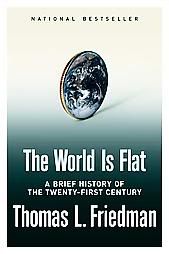BOOKS: What I Read, October
Hey, the month ain't even over, but I'm ready to go with my Books I Read, part the tenth, one dogged attempt to detail one wide-eyed young boy's yearly reading. Still slowed down a bit in October, reading only 6 books -- although one of them was a massive, slow read. That brings the year's total to 72 books,* or an average of 7.2 per month. You may call me bookworm.
October's books:
“Killing Yourself To Live: 85% Of A True Story,” by Chuck Klosterman. Reviewed right here.
“The Colorado Kid” by Stephen King. A thin-as-piano-wire thread of plot animates this bloated-up short story about a mysterious death on the Maine Coast, part of the "True Crime" series. It's really just a 10-page tale strettttttched into 150-something pages by King's meandering, and it's one of his least impressive books, I have to say. Some interesting bits but an anticlimactic ending and general "I'm just screwing around" feel to the whole enterprise leads me to say this is for King's fanatic fans only. King tries to write it all off in a semi-apologetic afterword, but he's done mystery better in many of his other books.
“Eiger Dreams: Ventures Among Men And Mountains” by Jon Krakauer. I like to read about things I'll probably never do. Hence my interest in mountain-climbing literature by folks like Tim Cahill and Krakauer. I'll never climb Mount Everest, but Krakuer's "Into Thin Air," his breathtaking account of a doomed Everest expedition, made me feel like I was there. This one is a collection of several earlier magazine pieces, and most of them are amazing glimpses into extreme people in extreme environments. A piece about a "zen" bouldering expert, a harrowing ice-climbing adventure and a trek up Alaska's Mt. McKinley were highlights in this great breezy read.
“The World Is Flat: A Brief History of the Twenty-First Century,” by Thomas Friedman. This was the 800-pound gorilla of the month, a hefty tome on global economic theory of all things, which sounds like the last book I'd find myself reading. But this buzzword book by New York Times columnist Friedman is actually a pretty fascinating discussion on our world and how quickly technology has changed it. I get this feeling sometimes when I'm at work busily using Google to research facts that would've taken hours to uncover a decade ago. History rarely is so immediate when you're living it, but Friedman steps back a bit to show us how quickly commerce and exchange has changed just since 2000.

What's interesting about it is that it ISN'T the U.S. that's really been affected so much as places like India and China, which Friedman convincingly shows us are rapidly catching up to and even exceeding the U.S. in both brainpower and willpower. Globalization isn't something that can be ignored or even really stopped, he writes, and too many folks in the U.S. seem to think harping about it will change the way technology is making everyone level players in a flat world. Instead he focuses on how to make globilization fair, humane and effective for all. He also offers a firm call for Americans to not coast on the success they had in the 20th century, because future progress isn't a guarantee.
Friedman takes a refreshingly non-political road for the most part, although he deservedly lashes the Bush administration several times, and notes how the U.S. has been so consumed by "the War on Terror' the past five years that it's missed a lot of how the rest of the world is changing. Now, you can quibble with a lot of Friedman's reasoning – and I have to admit the entire globe becoming Wal-Marts and Starbucks is an image I don't want to see from globilization – but overall it's a very thoughtful treatise that does what few books can do – make you think about the "big picture." The biggest flaw is that it's just about 100 pages too long, and after a while, Friedman's point feels redundant (drinking game: every time he says the world is flat, take a shot. Pass out at page 78). Still, it's recommended reading if only to provide you something to mull over.
"Writers on Comic Scriptwriting, Vol. 2" by Andrew Kardon and Tom Root. A fun collection of in-depth interviews with comic writers like Brian Bendis, Dave Sim, Bill Willingham and many more in this second volume of great inside-the-biz interviews by Titan Books.
"1968: The Year That Rocked The World" by Mark Kurlansky. I'm still in the middle of reading this one. It's a history of the year 1968, a political firestorm both in the U.S. and overseas. So far, it's quite a good read, taking all the varying players in protests and wars from Poland to the U.S. to Vietnam and weaving a tale about one of the more fiery years in recent times. Kurlansky admits he's not really objective about these times, having lived through them, so it has a fairly left-leaning slant, but so far it's still solid reporting and an interesting primer of recent history.
*[Fine print: The year to date posts: January, February, March, April, May , June, July, August and at long last, September.]

No comments:
Post a Comment